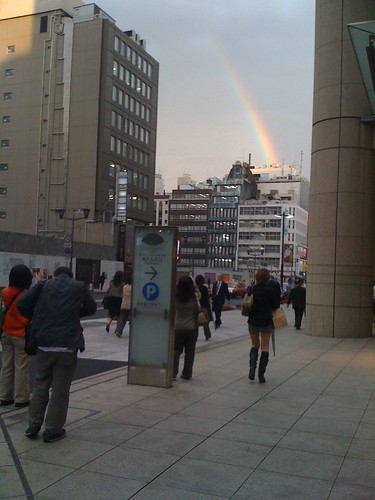
The other day I was talking about "all", "every", and "whole". When we were discussing it in class, two idioms using "whole" came to mind (definitions from Edict).
- 胸に浮かぶ (むねにうかぶ) (exp,vi,v5b) to come to mind; to pop into one's head;
- 頭に浮かぶ (あたまにうかぶ) (exp,vi,v5b) to come to mind; to pop into one's head;
- 思い当る (おもいあたる) (v5r,vi) to come to mind; to recall; to think of;
- a whole lot of __(n)__ = many __(n)__ <- stronger than "a lot of"
- the whole lot of __(n)__ = all of the __(n)__ <- a casual idiom
- Today, there were a whole lot of people at Nihonbashi because of a festival.
- Because of that, when I went into Family Mart to get a rice ball filled with sour plum, the whole lot of them were gone.
On Friday afternoon, when I came out of my Japanese lesson, I saw a whole lot of people on the corner. The whole lot of them were holding their cell phones up into the air. I didn't understand why until I looked at the sky. They were all taking pictures of a beautiful rainbow!
I'm looking forward to seeing the whole lot of you in class soon.

0 件のコメント:
コメントを投稿